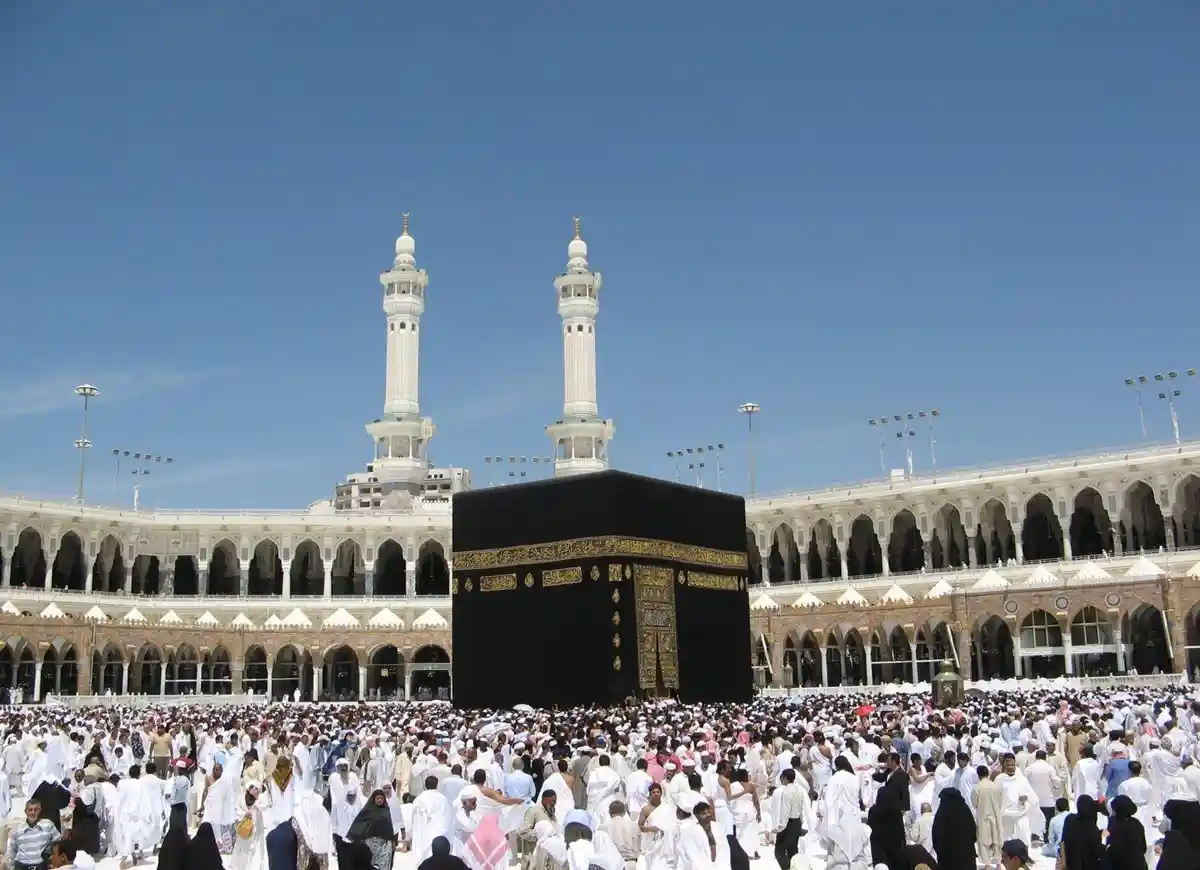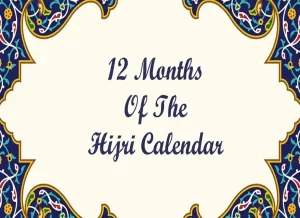Sacred Journey – Ensuring a Fulfilling Pilgrimage Experience with Essential Tips and Insights for Preparing for Hajj”
Who Needs to Perform the Hajj
Why There Are Two Needs for Hajj
• 3 Hajj preparations
• 4. Overall
• What to Pack in Your Bag
One of Islam’s five pillars is the Hajj. Every Muslim who satisfies specific qualifications is required to perform the Hajj once in their lifetime. What prerequisites are these? Are there any prerequisites for performing the Hajj? You may make far better and more effective judgments and organize your Hajj with the help of these and many other like questions.
Who Has to Complete the Hajj1?
If a Muslim fulfills these conditions, they must perform the Hajj annually for the rest of their lives:
He needs to be fully in control of his abilities and in good mental health.
To fully understand the importance of the mission He is attempting to complete, He should be at least a year old.
In addition to being able to cover all of the costs related to the Hajj, he should be able to provide for his family both during his absence and until he returns.
Conditions for the Hajj
Performers of the Hajj must be peaceful and dedicated to the cause, as it is a type of prayer. You can take a number of simple yet important actions to make sure you are in the appropriate frame of mind to fully enjoy this unique experience. All of these are apparent and based on common sense. To provide us a comprehensive perspective and to serve as a reminder, the following are reiterated:
To perform the Hajj only for Allah’s welfare should be your main objective. It is never appropriate to think how your acts of faith may impress or please other people.
All costs incurred during the Hajj must be covered by funds obtained via legal (Halal) means. Money received through dubious or unlawful means is not permitted.
You must have paid off all of your bills and financial responsibilities before setting out on your adventure. Additionally, if required, a written acknowledgement of the transaction for later use.
You ought to sincerely try to work out your differences with other people and ask for forgiveness from anyone you may have offended in the past. This is founded on explicit directives from the Prophet Muhammad (pbuh) and must be adhered to for the Hajj to have significance.
The preparations for the Hajj
One cannot overstate the significance of making an early and comprehensive preparation for Hajj, as it is an occasion that many people will never get again. A substantial investment of time, financial resources, and physical exertion are required for the experience to be both meaningful and satisfying. It is imperative to compile data, plan trips, and examine the supporting documentation.
Not only do these preparations lessen financial strain, mental anguish, and physical suffering, but they also enable you to perform the Hajj in a condition of physical and mental tranquility. Thus, it makes sense to get ready as much as possible for this historic voyage of introspection, self-discovery, and spiritual awakening.
It is crucial that you begin making your plans far in advance to avoid having to scramble for time in the final few days before your vacation. It takes a lot of time to finish the paperwork, make the purchases, plan your trip, and make final arrangements for your housing in Saudi Arabia, among other things.
It’s a great idea to start making arrangements three or four months before the departure date. Your trustworthy friend who has completed the Hajj before or your travel agent can help you with the arrangements. As they advise, you should apply the “factor of security” and give yourself extra time to prepare!
These rules are intended to set you on the correct course. Since everyone has different needs and preferences, when you are packing for your trip, you will probably include the following things:
Agent for Travel
Look for a travel agency that offers a wide range of Hajj “packages”. While there are many travel agencies all around the nation providing Hajj services, not all of them are of the same caliber and value. Selecting the top agent is crucial. Throughout the Hajj, a travel agency representative most likely will serve as your guide and assistance. This is an important step in your preparation; give it your full attention.
Consult your friends and family members who have lately used different companies’ services for recommendations. Travel agents vary greatly in terms of service quality and commitment to pilgrims’ comfort and well-being. A trustworthy and accountable agent may “make” you feel more at ease throughout the Hajj, but a dishonest agent has the same potential to “break” it.
Make sure you ask your travel agent the right questions to help you with your needs and that you receive answers to your questions.
How much time did you spend in Medina and Mecca? Which dates? Are the programs adaptable, or do they prohibit modifications after they have been made? Do these kinds of changes come with extra costs? If so, what is it?
How far will you be in Mecca and Medina from Haram ash Shareef? If your house is more than ten to fifteen minutes’ walk from Haram ash Shareef, what kind of transportation service will be provided? When will it be available during the day?
Will there be a travel agency person with extensive knowledge of Hajj rituals and Saudi immigration, customs, and travel procedures present during your visit? Do they intend to remain in Saudi Arabia throughout your visit?
You don’t want to be stranded in Saudi Arabia without sufficient direction and assistance. Saudi Arabian laws and regulations can be quite challenging, annoying, and time-consuming.
Can the individual speaking on behalf of the agent speak Arabic fluently? If not, is there a Saudi Arabian interpreter available? Since most Saudi officials do not speak English, your ability to communicate in Arabic will probably be limited.
Is it possible for you to travel in Saudi Arabia using a car that you hire on your own, at your own expense, rather of using the pre-paid bus that your muallim offers, for example, from Mecca to Medina? Are you thinking about leaving the country by returning via plane from Medina to Jeddah rather than the usual expensive bus ride? Think about the extra expense.
These are things that you may want to think about because bus travel during the Hajj season can be somewhat unpleasant. For example, a journey from Mecca to Medina (around 400 km/250 miles) could take twenty to thirty hours, but a taxi would take three to four hours to cover the same distance. The time you save and the avoidance of bodily discomfort make the small additional expense worthwhile.
Use your bus coupons that aren’t being used at the Jeddah airport when you get out if you decide to use one of the other travel options (it is highly advised that you give them careful consideration). In this case, your travel agent can help.
What kind of arrangements do you have for your stay in Arafat and Mina? And what about Muzdalifah, Arafat, and Mina’s meal schedule?
Do meals count toward the cost of your package? If the agent tries to alter the menu, find out from them. You may need to add fruits, milk, or other items to your meals. The food that agents supply is typically monotonous, and the lack of variation might leave you starving after a few days!
Could the agent arrange for you to be sacrificed on the tenth day of Zul Hijjah? Agents typically charge a small fee for this service. They will let you know when the sacrifice is scheduled so that you may schedule any additional rituals around it.
Immunizations
A few vaccines must be completed in order to receive a Hajj visa. The World Health Organization (WHO) releases yearly recommendations and details about the vaccines needed to travel to many nations, including Saudi Arabia. The necessary information will either be readily available to your doctor or he or she can easily access it.
For more information, be sure to contact the Saudi Arabian Embassy or your travel agency. The standards set by the Saudi government are generally more strict than those recommended by the WHO. For instance, in 1997, the WHO recommended vaccination against meningococcal meningitis in order to go to Saudi Arabia; however, the Saudi authorities also insisted on cholera vaccination.
Your doctor may suggest further vaccinations based on his training and expertise. The author of the paper, a medical professional with expertise in infectious diseases, recommended and gave vaccinations against malaria, diphtheria/tetanus (D/T), pneumonia, and typhoid fever.
This may seem like “overkill,” but in many cases, it will be. When more care is needed, though, it can save you a great deal of worry and stress. For example, in 1997 there was a typhoid epidemic in India, and some pilgrims from the writers’ group who went to India after the Hajj was completed became extremely ill there.
They may have caught the disease from India directly, or they may have been carriers among Saudi Arabian pilgrims who traveled to India. In any case, they may have avoided stress and suffering if they had received treatment for their illness earlier. If they had become ill with typhoid from pilgrims from India and were unable to complete their Hajj, they might have been in Saudi Arabia.
You have to get from your County or State Health Department an official Vaccination Record Book (often known as the “Yellow Book”). Subsequently, have your physician sign it, and then stamp it. You don’t want the Saudi visa officials to reject your application because of a little detail like this, therefore anything less could be deemed unsuitable. Along with your other important paperwork, keep the immunization record and carry it with you to Saudi Arabia. It’s never too early to plan for potential needs.
Records
According to Saudi government regulations, your passport must remain valid for at least six months beyond the date of departure. You can get a new case early or extend the validity of the current one if it isn’t valid. Under normal circumstances, it may take some time for a passport to expire or be renewed. The necessary paperwork and other details relevant to your case should be available at the post office in your neighborhood.
If you have a “green card” and intend to leave the United States, your passport must still be valid six months after the date of departure. If there are any additional rules, your travel agency can let you know about them.
To receive a Hajj visa, you must have a round-trip ticket from Saudi Arabia. A specific set of documents will be asked of you by your travel agent to be submitted with your visa application. The agent will often take care of the visa application as part of his duties.
To obtain a visa and other documents, the travel agency you select is probably going to need to see up to five passport-sized photos. When you go to Saudi Arabia, make four or five more copies and bring them with you. They can be needed for other Saudi paperwork and procedures, such as getting ID cards from your muallim. Having extra pictures on hand has the benefit of saving you the trouble, expense, and time of having them printed in a foreign nation.
If you were born in the United States of America, you could need a formal document certifying your Muslim identity from an official body (such as the Imam of your mosque). The paperwork is essential, especially if you don’t have a conventional Muslim name, as non-Muslims are not permitted to enter holy cities like Mecca and Medina. You can get details on the document’s details from the Saudi Embassy or your travel agency.
Make a Last Will and Testament and have a notary public sign it. If the will is complicated or you are worried about your possessions in the event that something unexpected happens to you while you are doing the Hajj, get legal counsel.
Put the original will in a family member’s reachable safe deposit box. An original copy must be given to the executor/executrix, and your attorney should retain a copy. Request that he tell you of the probate laws in your state, as well as those in your immediate family who may be impacted by the will. Additionally, he ought to counsel them on the best course of action to do in the event that you pass away abroad.
Overall
The Hajj will require a great deal of physical exertion from you. Each and every Hajj ritual, including Tawif, Sai, Rummy, and others, calls for a great deal of strength and stamina. Tens of thousands of pilgrims attempting to execute identical ceremonies simultaneously in a cramped place with intense heat puts additional strain on both your physical and mental fortitude.
Being in good physical shape is crucial to being prepared for the trials that lie ahead of you. To do this, start three to four months before your departure with a regimen of intense walking and running for twenty to thirty minutes each day. Increase this gradually to one hour every day, or every day.
After a few days of running or walking, start reciting the Talbiyah and the prayers for Tawaf. This will help you enter an enlightened state of mind by keeping your mind occupied during the monotonous exercise. If you are interested in knowing more about the history and customs of Hajj, you can acquire and read up on Hajj and its rituals. Concentrating on the significance of the prayers will help you prepare for both the actual Hajj and for traveling on it. Understand every facet of the Hajj process.
Keep in mind the prayers you will be saying and learn their meaning. When you understand what you’re reciting, it’s lot more enjoyable and rewarding to accomplish this with very little effort. Reciting prayers without knowing the meaning of the words is not very beneficial.
Your level of awareness of Hajj, its responsibilities, and its prohibitions will determine how at ease and tranquil you feel during the entire journey. You’ll be self-assured and self-reliant, not relying on your family or a muwwwif for advice or suggestions. Your prayers will bear witness to your steadfast devotion, which is based on understanding and confidence. You’ll be able to support and mentor your less seasoned friends, answer their questions, and allay their fears.
Some individuals choose to rely on trained mutawwifs to perform the Hajj ceremonies because they lack the time to learn the rites and prayers in their own way. Under the direction of these specialists, they are doing their Tawaf and attempting to recite the prayers that their muwwif sounds out while attempting to keep up with the “leader” among the throngs of pilgrims gathering around the Kabah! The difficulties and frustrations that arise from attempting to follow and copy someone else’s intonation when in a sizable, moving crowd can be eliminated with a little work.
Women who are pilgrims must travel with their husbands, or mahrams, which are members of the immediate family to whom marriage is expressly prohibited by Islamic law. Examples of such individuals are fathers, uncles, brothers, nephews, and uncles. If a specific family member who is a member of the group sponsors a female pilgrim who is forty-five years of age or older, she is permitted to travel with the group without a mahram. For further information, ask your agent.
Items to Bring With You
This is a somewhat large list of everything you will need to pack in order to make your trip to Saudi Arabia convenient, safe, and less stressful. You may wish to adjust the list to suit your choices as each person has different needs and preferences.
Youram
The Ihram is made up of two plain, unsewn pieces of white fabric, either light terry cloth or 100% cotton. They are more absorbent for the heavy perspiration you will probably experience during the Hajj and are comfortable to wear. The two components have the following sizes:
120″ (3 1/3 yard) x 45″ (1 1/4″) on the bottom
Top Part: 72″ (2 yards) x 45″ (1 1/4″)
A normal belt or fanny belt could be used to serve the same purpose, but a piece of cloth called an Ihram is more convenient and less noticeable. It helps keep the Ihram securely in place and unlike a fanny bag or pouch, it does not need to be scrutinized from the security personnel at the entry point of Haram ash Shareef. Cut two to three inches wide strips of sufficient length of identical material. Make one of them a belt to secure the bottom of the. The other one can be kept to use as a spare.
- Cut a strip of the material that is eight to ten inches wide. Use it to hold cash or credit cards, airline tickets, etc., on your belly below the. Stow the goods within the pouch inside a plastic sandwich bag to keep them safe and dry. As safe as it gets is this. Unlike a belt or fanny pack, which robbers and pickpockets are less likely to discover. A fanny pack can still be useful for carrying additional items, including a pen or handkerchief, medication, and some cash for regular use. Police in Mecca and Medina will inspect the fanny pack at the entrance to Haram ash Shareef. The cops are only trying to do their jobs, so please be patient and understanding.
Drugs - During the Hajj, gastrointestinal and respiratory system infections are rather prevalent. Numerous diseases are carried by people from all over the world, and the tens of thousands of pilgrims’ strangely close proximity to one another facilitates the spread of these diseases. The physical strain of the Hajj ceremonies, coupled with the intense prayers and devotions, wears individuals out and causes them to sleep less, which increases their susceptibility to sickness. Nonetheless, you can take simple preventative measures to reduce your chance of getting sick and ensure that, in the event that you do, you recover more quickly and return to your regular schedule. Before you leave, getting fit and healthy with regular exercise is a great place to start. Additionally, you might pack some prescriptions in case you need them later.
- For the duration of your stay in Saudi Arabia, speak with your doctor about getting a prescription for a broad-spectrum antibiotic that you should take as a precaution. The writer was prescribed 250 mg of the antibiotic CIPRO by the doctor, and this medication had to be taken daily. Since he was the only member of his group of 75 who was healthy and disease-free during his stay, the writer considered it to be extremely successful and advantageous. CIPRO is widely available in Saudi Arabia. Saudi doctors and pharmacists administered AMOXICILLIN to a small number of patients with encouraging outcomes. In Saudi Arabia, most pharmaceuticals are available for purchase, and pharmacists are also authorized to write prescriptions. But, for obvious reasons, it is advised that any needs be seen by a U.S. physician.
Possess enough prescription medications, such as aspirin, TYLENOL, ADVIL, or ADVIL (for pain)
TYLENOL PM (as a sleep aid)
ASPERCREME BENGAY (for discomfort in the muscles)
IMMODIUM, PEPTOBISMOL (for diarrhea)
METROL (in case of illness)
SMOKING DROPS FOR COUGH, ANTIBACTERIAL CREAM (for cuts), MULTI-VITAMINS BAND-AIDS
Fanny Pouch, or Waist Pouch
Always keep valuables (papers, cash, traveler’s checks, keys, credit cards, etc.) in the waist-level fanny pack. Never leave the house without your hip pouch on. When in regions with a large number of people, exercise extra caution and vigilance. Pickpockets and thieves can be found at Haram Ash Shareef! In busy places, such as during Tawaf or when visiting Al Masjid un Nabawi in Medina, secure the bag with your hands. Invest in a premium pouch or fanny belt. It’s a small investment, but a great one. - Carrying case
It is highly advised to bring high-quality, hard-cased luggage with an inbuilt lock. The soft plastic suitcase with the lock outside is not to be used. The contents of the suitcase could be readily removed, and the locks could be quickly broken. Many people have the misconception that every resident of holy places like Mecca, Medina, and Al Haram ash Shareef is a devout, god-fearing Muslim. It keeps them protected from criminality. It isn’t true, though. Crimes happen even with the harsh punishments that Saudi authorities impose on people found guilty of crimes. Because of their concern with Hajj activities, pickpockets and criminals find it easier to prey on unsuspecting pilgrims who are letting their guard down. - Never place cash, critical documents, or any other valuables inside your suitcase; instead, keep it closed and safe.The cleaners regularly clean your living area. The best defense against temptation is to never give someone the chance to compromise their integrity. Two sets of keys should be attached to your luggage. Put one set in the fanny pack that fits inside your backpack and the other set somewhere safe and apart.
Cash - Make sure you have sufficient funds to pay for the things you expect to need. It’s challenging to recommend a set amount because each person has different needs, travel and lifestyle preferences, shopping schedules, and so forth. differ significantly. It is entirely up to you to decide how much you want to keep. But don’t tell anyone else how much you own or where it is kept. of preservation. You ought to use caution at all times.Some helpful tips for this are as follows:
- Traveler’s checks should comprise the majority of your funds. They are easy to replace in the event of loss or theft, safe to carry, and practically anyplace they can be paid. Your identification card from your muallim will probably be utilized for checks cashing as Saudi officials in Jeddah took away your passport during your visit. The importance of this card cannot be overstated. Make sure you give it your full attention!
- Travelers’ checks are cashable at a range of “sarrafs” (money changers) in the marketplaces of Mecca and Medina, in addition to those at Saudi banks.
- Carry a modest quantity of Saudi Rials with you. It is advised to have at least 1,000 riyals (1 dollar is equivalent to 3.75 riyals). Nearly all of the exchanges at the main airports in the United States have them available. When you first arrive, the Saudi money can assist you take care of your urgent needs and familiarize yourself with the local system. Additionally, it will save you the trouble and time of having to go to banks to deposit your checks. During the Hajj season, banks are typically busy and may close on certain days or at certain hours of the day.
- To reduce the chance of it failing, use just one credit card. Make sure you use it to pay for your phone calls as well. In the event of theft or loss, make sure you have the necessary information on hand to get in touch with the company that issued your credit card.
Additionally, carry some US cash with you. It can be exchanged for Saudi money in any circumstance, including soon after you return to the United States.
Outfits - Most of the year, Saudi Arabia is one of the hottest places on earth. The unbearable part of the Hajj is the two to three million people that congest already crowded spaces and the continual pushing and shoving. The Hajj rites require a lot of physical and mental work, including ziyarat (seeing historically or religiously significant locations), shopping, and other activities. Thus, clothing that is breathable and light enough for city wear is perfect.
- Make sure you have adequate clothing for a relaxing stay. But exercise caution so as not to overdress oneself. One clothing does not survive more than a day in the sweltering heat of Saudi Arabia. Coin-operated washing facilities are uncommon in Saudi Arabia, however professionally managed and maintained laundry facilities are widely accessible. Having your garments professionally cleaned is particularly costly because expenses tend to go up during this Hajj season.
It may be necessary—in fact, it is highly recommended—to do a little light DIY laundry. Bringing laundry detergent and washing your socks and other tiny and light items is a great idea. You will have plenty of time to yourself both before and after the Hajj. Utilize it for “housekeeping” tasks.
Indo-Pak shalwar-qamees, kurta-pajamas, and Saudi tobes (a one-piece, head-to-toe ensemble) are ideal and highly recommended for streetwear. In Saudi Arabia, tobes are easily obtainable.
It could be a good idea to bring a lightweight jacket for Medina’s early morning hours, which can be cool during the day between October and November, depending on the season.
Water, Snacks, and Foods - It makes no sense to bring the food products. Everything you require is available in Saudi Arabia at a fair cost. On the other hand, large-scale imports of perishable foods are prohibited by Saudi authorities. Travelers and pilgrims are permitted to enter the nation with limited quantities of cans and packaged goods. Foods that are carried on can be helpful and handy in an emergency or during long waits (as at the airport in Jeddah). The Jeddah airport has a wide variety of culinary options that are easily accessible. On the other hand, some people like to prepare their own meals while they travel. The ensuing paragraphs include the general criteria that follow:
- A few boxes of cookies and crackers are helpful and a delicious snack. Release them from their containers since they are more compact than single rolls. Granola bars, packaged dates, fig Newtons, and other like goods are also recommended.
- The wide range of fruits is easily accessible in Saudi Arabia and offers much-needed taste and nutrition. Peelable fruits (bananas, oranges, etc.) are recommended to lower the risk of infection from handling them improperly. Before using, make sure to carefully clean all fruits, and steer clear of fruit and other food products that have been exposed to the weather.
Soft drinks come in a variety of varieties and are safe to drink in big and local retailers throughout Saudi Arabia. Your only water source should be bottled water because it is reasonably priced. Drinking water from taps or other sources is not recommended, with the exception of Zam-Zam water, which is just that—Zam-Zam water. - yogurt, milk, and buttermilk Dairy items such as ice cream, milk, yogurt, and buttermilk are easily accessible and can be included into your diet to enhance it.
Bring two eighteen-ounce cans of powdered GATORADE or POWERADE with you. They make a delightful and invigorating drink when combined with cooled water, and they can aid in the replenishment of lost chemicals and body salts from excessive perspiration.
Other - This is the list that you must bring with you. They’ll simplify things and improve your comfort level while visiting Saudi Arabia.
Pocket knife with multiple blades that can be opened
The items include a nail clipper, miniature scissors, a toothbrush, tooth paste, throwaway razors, and shaving cream. - • A little mirror
• Napkins; • Comb; • Toilet paper (2 rolls)
• two cakes of soap; a plastic dish for soap; a tiny bottle of shampoo
• Chapstick, deodorant, little Vaseline, toothpicks, pocket Quran, Tasbeeh, pen, pencil, and notepad
• sneakers; • flip-flops or slippers with flip-flops
• Umbrella that folds
• travel alarm clock; sunglasses (or clip-on sunshades); tiny flash light with extra batteries;
ten sandwich bags with zippers; four rubbish bags and plastic spoons; laundry detergent; six plastic bags for grocery shopping; an elastic-strapped eyeglass holder; a baseball cap;
• musalla (prayer rug); • one heavy sheet; • two tiny and two large towels; • an inflatable pillow
Categories: PRAYER (Salat), ALMS (Zakat), SAWN (Fasting) HAJJ (Pilgrimage) & DUA (Supplications), Hadith and Tafseer, The Holy Quran, Quran Jaz 1- 114
Topics: Ushr and Zakat, Hijab, Arabic Corner, Faith, Islamic History, Biography, Sirat ul Nabi PBUH, Islamic Studies, Halal & Haram
Hajj:
- What is Ihram Haji ? | Hajj and Umrah-Quranmualim
- Importance of The Days of Zil Hajj | The Day of Arafah
- Define Menses during Hajj and Umrah | Mina in Makkah
- The Holy pilgrimage of The Messenger | The Rituals of Hajj
- 3 Types of Hajj | Tamattu | Ifrad | Hajj Qiran – Quranmualim








